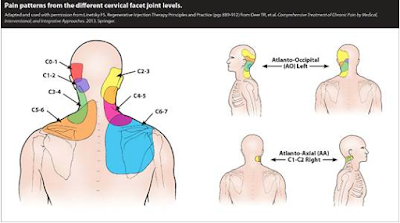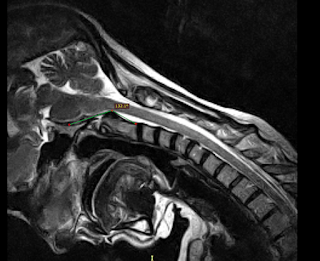What to do if you think you have Gastroparesis #Part 1
Gastroparesis literally translated means stomach paralysis. Some other terms you may hear used along the way are: Delayed Gastric Emptying, Motility Disorder, Functional Disorder, Functional Vomiting/Cyclic vomiting, visceral hypersensitivity/hyperalgesia, Visceral Neuropathy.
This advice is based on my own personal experience, it is not intended to substitute professional medical advice and if you do think you may have Gastroparesis you should seek advice from a doctor.
Gastroparesis is a chronic (long term) condition and diagnosis and subsequent therapeutic treatment can be a lengthy process. You need to keep a strong head, even if the rest of you feels like it's falling apart. Arm yourself with as much information as possible to help you make the decisions you may face on your journey.
Now we have that out of the way, what I will tell you is... you don't have to take one doctors word for gospel! If you are not happy with the treatment you are getting PLEASE PLEASE ask to see someone else. It is vitally important to feel that you can trust the people involved in your care, at the end of the day it is your body and you deserve the best.
Due to a general lack of understanding and wide variety of overlapping symptoms, gastroparesis can go undiagnosed for years. This leaves many patients struggling to cope on their own and suffering in silence.
Many doctors believe "functional disorders" to be a mere annoyance to most patients and dismiss it as a mild complaint which is not life threatening. In many cases this is true, lots of patients can live a normal life with a modified diet and a few small lifestyle changes.... however for some, the story is very different. In severe cases it can lead to a total inability to eat or drink adequately which then leads to long term malnutrition and dehydration. Living with any long term illness can have a serious effect on the QUALITY of life and that is what is important to Gastroparesis patients.
We don't simply want to be alive, we want to be able to live life.
Take a look at the "Gastroparesis" page if you would like to know more about the signs, symptoms and treatment options. Also take a look at "useful sites" for informative websites that have helped me along the way.
So, step one:
Before you visit your GP it is a good idea to do a bit of ground work first. This will help you get the most out of your appointment and give him/her a clear understanding of what life is like for you.
This advice is based on my own personal experience, it is not intended to substitute professional medical advice and if you do think you may have Gastroparesis you should seek advice from a doctor.
Gastroparesis is a chronic (long term) condition and diagnosis and subsequent therapeutic treatment can be a lengthy process. You need to keep a strong head, even if the rest of you feels like it's falling apart. Arm yourself with as much information as possible to help you make the decisions you may face on your journey.
Now we have that out of the way, what I will tell you is... you don't have to take one doctors word for gospel! If you are not happy with the treatment you are getting PLEASE PLEASE ask to see someone else. It is vitally important to feel that you can trust the people involved in your care, at the end of the day it is your body and you deserve the best.
Due to a general lack of understanding and wide variety of overlapping symptoms, gastroparesis can go undiagnosed for years. This leaves many patients struggling to cope on their own and suffering in silence.
Many doctors believe "functional disorders" to be a mere annoyance to most patients and dismiss it as a mild complaint which is not life threatening. In many cases this is true, lots of patients can live a normal life with a modified diet and a few small lifestyle changes.... however for some, the story is very different. In severe cases it can lead to a total inability to eat or drink adequately which then leads to long term malnutrition and dehydration. Living with any long term illness can have a serious effect on the QUALITY of life and that is what is important to Gastroparesis patients.
We don't simply want to be alive, we want to be able to live life.
Take a look at the "Gastroparesis" page if you would like to know more about the signs, symptoms and treatment options. Also take a look at "useful sites" for informative websites that have helped me along the way.
So, step one:
Before you visit your GP it is a good idea to do a bit of ground work first. This will help you get the most out of your appointment and give him/her a clear understanding of what life is like for you.
- Keep a diary of your symptoms, include the time of day and what you were doing ie exercising, resting, sleeping, eating.
- Keep a record of any food you eat, if possible write down how you felt after you ate ie pain, nausea. It is a good idea to do this in the form of a common pain scale ie 0 no pain 10 worst pain.
- Keep a record of bowel movements if this is a problem for you.
- Weigh yourself once a week to monitor weight loss.
It sounds like a lot of leg work but it's not so bad. You can make up a simple A4 chart to contain all the information. You don't have to go into great detail, it needs to be clear enough for your Dr to read it quickly... so stick to the number scoring and simple descriptions to make it easy.
Take a friend or family member with you to your appointment and don't be frightened of suggesting gastroparesis as a possibility! We can all be guilty of thinking that Dr's know everything and leaving it up to them (after all Dr knows best right?). I have had the "eye roll" from Dr's numerous times for making suggestions etc, but if it sparks a basis for diagnosis then you could knock months off the diagnositic stage! Now that's got to be worth speaking out for!
I have compiled a list of Gastroparesis specialists for the UK, follow the link below x
Doctors List
Take a friend or family member with you to your appointment and don't be frightened of suggesting gastroparesis as a possibility! We can all be guilty of thinking that Dr's know everything and leaving it up to them (after all Dr knows best right?). I have had the "eye roll" from Dr's numerous times for making suggestions etc, but if it sparks a basis for diagnosis then you could knock months off the diagnositic stage! Now that's got to be worth speaking out for!
I have compiled a list of Gastroparesis specialists for the UK, follow the link below x
Doctors List
Click Here For #Part 2 I hope this helps get the ball rolling for you x


If your physician won't listen or refuses to look at your logs as some of mine have in the past - leave and seek a new physician immediately. I've been told that my blood glucose & food logs were "for me" or that they "didn't have time to look at that nonsense".
ReplyDelete